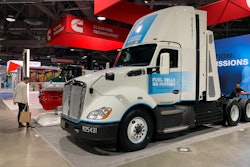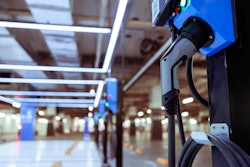The trucking industry introduced the concept of fuel surcharges to deal with fuel price volatility, unexpected fuel price changes over short periods. Fuel surcharges essentially pass on the extreme cost of freight fueling from the carriers to the shippers. It seems inevitable that the concept of fuel surcharges could be applied in creative ways to issues with fuel prices for alternative fuels like hydrogen, renewable natural gas, renewable diesel and electricity.
First, a little background on fuel costs in perspective of operational costs is needed. The American Transportation Research Institute (ATRI) indicates that fuel costs for fleets varied from a high of 38% of costs in 2011 to a low of 18% in 2020. As of July 4, 2022, the Energy Information Administration (EIA) reported the national average diesel price was $5.675/gal, up $2.344 from the prior year. I expect that fuel costs are returning to the 2011 percentage of motor carrier costs. A rule of thumb used to be that one-third of the costs of operating a truck were the fuel, one-third the vehicle and one-third the driver. It appears that fuel price inflation is finally catching back up to driver and vehicle cost inflation.
In the past, fleets negotiated shipping contracts based on fuel pricing projections. If the fuel prices did not perform to those predictions, either the carrier or the shipper made extra money. The weekly changes in fuel prices in the 1980s and 1990s, with some exceptions, were generally more gradual and limited. From 1999 onward, large weekly changes became increasingly more common. Enter the concept of fuel surcharges.
The basic concept behind fuel surcharges is described by Mark Solomon in a DC Velocity article as comprised of three parts, “1) an index which is the basis of the surcharge, 2) a “peg” — a contractually negotiated range within which the fuel price can vary and surcharges are not applied, and 3) an “escalator,” which determines the actual surcharge based on the average mpg of the fleet. Digging into it further is a bit like trying to understand a cricket game.
A recent report by Frank Holland on CNBC highlighted that fuel surcharges are not just a means for dealing with volatility, they tend to also be potential revenue generators for fleets. He reported that two large fleets got more than 10% of their revenue from surcharges.
The concept of fuel surcharges offers potential new business models for emerging alternative fuel vehicles, battery electric vehicles and fuel cell vehicles.
A major challenge with all the new technologies proposed for transitioning to a future zero-emission freight system is that they seem to generally cost more than the baseline current diesel trucks. Some of this cost differential is in upfront capital expense to buy the vehicles where, for example, a battery electric truck may be 2x to 3x more expensive than a diesel-powered truck. Some of the cost differential is the price of the new fuels. For example, hydrogen is significantly more expensive today, and efforts are being focused on how to bring the cost more in line with diesel.










